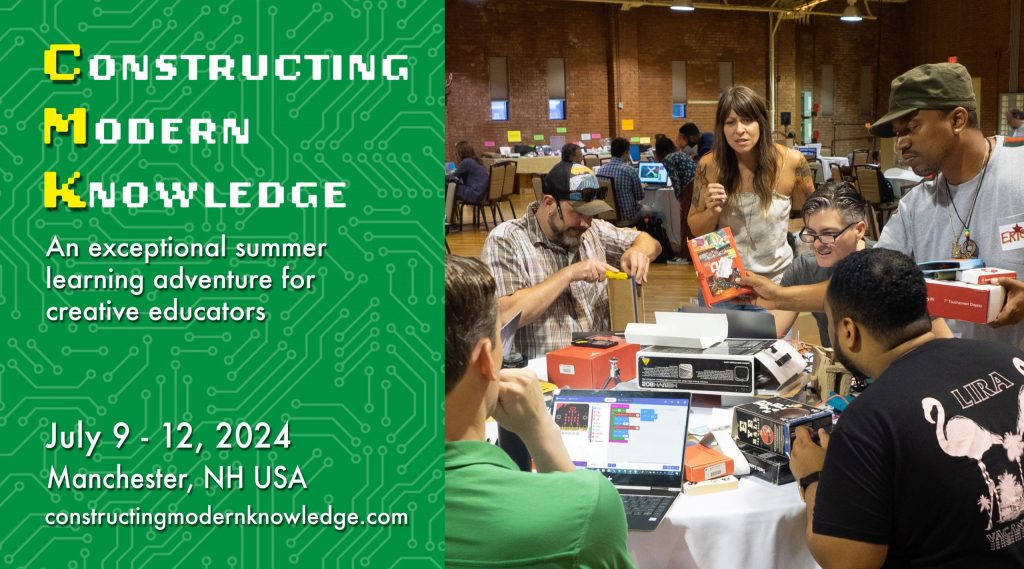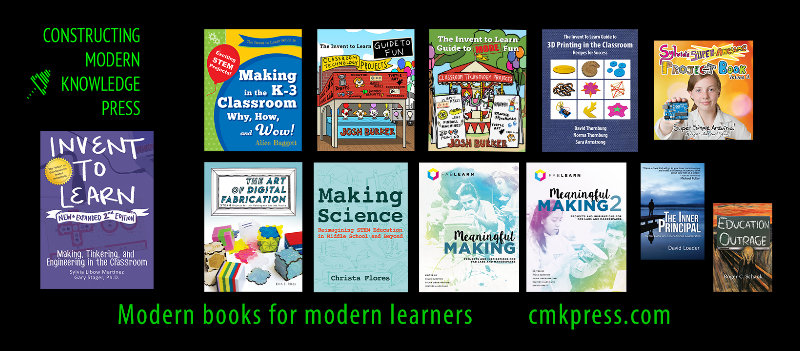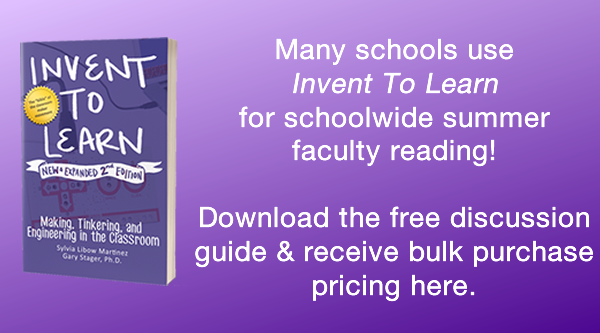I once heard former President Clinton say, “every problem in education has been solved somewhere.” Educators stand on the shoulders of giants and should be fluent in the literature of their chosen field. We should be reading all of the time, but summer is definitely an opportunity to “catch-up.”
Regrettably too many “summer reading lists for educators” are better suited for those concerned with get-rich quick schemes than enriching the lives of children. Case-in-point, the President of the National Association of Independent Schools published “What to Read this Summer,” a list containing not a single book about teaching, learning, or even educational leadership. Over the past few years, I offered a canon for those interested in educational leadership.
When I suggested that everyone employed at my most recent school read at least one book over the summer, the principal suggested I provide options. Therefore, I chose a selection of books that would appeal to teachers of different grade levels, disciplines, and interests, but support and inspire any school’s desire to be more progressive, creative, child-centered, authentic, or project-based. This list has been embraced by countless other institutions as the basis for summer reading and subsequent instruction.
Recommendations for Whole School Faculty Summer Reading
In the Spirit of the Studio: Learning from the Atelier of Reggio Emilia, Second Edition
.
Aimed at early childhood education, but equally applicable at any grade level. Illustrates how to honor the “hundred languages of children.”
Loving Learning: How Progressive Education Can Save America’s Schools
.
A spectacular case made for progressive education in the face of the nonsense masquerading as school “reform” these days.
The Big Picture: Education is Everyone’s Business
.
Aimed at secondary education, but with powerful ideas applicable at any level. Students spend 40% each week in authentic internship settings and the remaining school time is focused on developing skills for the internship. This may be the best book written about high school reform in decades.
The Children’s Machine: Rethinking School in the Age of the Computer
.
A seminal book that situates the maker movement and coding in a long progressive tradition. This is arguably the most important education book of the past quarter century. Papert worked with Piaget, co-invented Logo, and is the major force behind educational computing, robotics, and the Maker Movement.
Making Learning Whole: How Seven Principles of Teaching Can Transform Education
.
A clear and concise book on how to teach in a learner-centered fashion by a leader at Harvard’s Project Zero. Should be essential reading for all educators!
Changing Lives: Gustavo Dudamel, El Sistema, and the Transformative Power of Music
.
“One of the finest books about teaching and learning I’ve read in the past decade.” (Gary Stager) Tells the story of how hundreds of thousands of students in Venezuela are taught to play classical music at a high level. LA Philharmonic Conductor Gustavo Dudamel is a graduate of “El Sistema.” The lessons in this book are applicable across all subject areas.
Notable New Books
Math-ish: Finding Creativity, Diversity, and Meaning in Mathematics
.
Jo Boaler’s new book filled with creative ideas for teaching mathematics to learners of all ages.
An End to Inequality: Breaking Down the Walls of Apartheid Education in America
.
Jonathan Kozol is an American treasure and the conscience of education. His new book is a must-read.
The Cure for the “Science of Reading” & the Explicit Instruction Craze
This small book in Q&A format by Frank Smith will cause you to question and help you respond to the current hysteria about the “literacy crisis” “science” being used to justify systematic synthetic phonics instruction.

Unspeakable Acts, Unnatural Practices: Flaws and Fallacies in Scientific Reading Instruction
At last (2003), noted language researcher and educator Frank Smith weighs in! Using his razor-sharp analytical skills in linguistics and intimate understanding of professional teaching, Smith dismantles the shoddy science undergirding direct, intensive, and early phonics training. His book title is to be taken literally. The very reading instruction that claims to be “scientific,” “research based,” and “evidence based”―imposed on teachers and enforced through innumerable mandated tests―is founded on activities that are unspeakable and practices that are unnatural. The mandated approach to language teaching is, in fact, linguistically impossible, as Smith proves.
And What Do You Mean by Learning?
One of America’s original thinkers about public education, Seymour Sarason poses the crucial question for all educators-“”What do you mean by learning?” “Learning” is the word most used in educational literature and yet educators have great difficulty in defining it. Sarason demonstrates that the lack of clarity about the concept of learning is at the root of the disappointments of educational reform, the inadequacies of preparatory programs, and proclamations of policy. He takes a good look at another question as well: Why are the principles of learning implied by what parents of preschoolers say and do so different from the principles educators employ? And he goes a step further when he asks: Why is it that no one, educators or otherwise, has ever said that schools are places where teachers learn?
Summer Fun (and learning) for the Whole Family
The Invent to Learn Guide to the micro:bit
.
The most comprehensive micro:bit and MakeCode book to date by Pauline Maas and Peter Heldens. This book offers more than thirty electronics, programming, and physical computing projects from simple to complex using the low-cost, but versatile, BBC micro:bit.
Scrappy Circuits
.
In Michael Carroll’s Scrappy Circuits you’ll find an imaginative “do-it-yourself” way to learn about electrical circuits for less than $1 per person. Raid your junk drawer for simple office supplies, add a little cardboard, pay a visit to a local dollar store, and you are on your way to countless fun projects for learning about electronics. No soldering or expensive equipment required.
Learn by making this summer; alone, with colleagues, or with your own children!

Veteran educator Gary Stager, Ph.D. is the author of Twenty Things to Do with a Computer – Forward 50, co-author of Invent To Learn — Making, Tinkering, and Engineering in the Classroom, publisher at Constructing Modern Knowledge Press, and the founder of the Constructing Modern Knowledge summer institute. He led professional development in the world’s first 1:1 laptop schools thirty years ago and designed one of the oldest online graduate school programs. Gary is also the curator of The Seymour Papert archives at DailyPapert.com. Learn more about Gary here.














